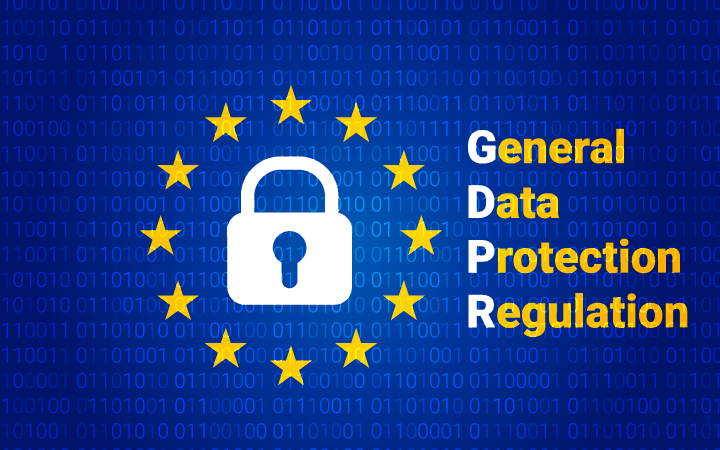The General Data Protection Regulation, better known as GDPR, is a pacesetting privacy protection framework that has sought to regulate data protection laws across all EU and EEA member states. It’s been touted as the most stringent legal framework that puts an onus on the data controller and processor to ensure all data subjects’ privacy and anonymity. Data subjects are the people whose data is being collected. Even though similarly-themed regulatory frameworks have existed before, none compare to the GDPR in the impact, coverage, and control scale.
Drafted in 2016 and instituted in 2018, the GDPR followed in the wake of some of the biggest data scandals that rocked the corporate world. The Yahoo breaches in 2013 and 2014 leaked details of over 3 billion people. Massive data breaches also occurred in MySpace, LinkedIn, NetEase, Dubsmash, and Facebook. As data collectors and processors – organizations that handle subjects’ data rely heavily on big data for their day-to-day business processes, the risk of exposure has multiplied; so has the public’s grievances regarding outmoded data protection practices still followed by companies.
According to the RSA Data Privacy and Security Report, which surveyed 7500 individuals in countries such as France, the UK, the US, Germany, and Italy, 80% of the respondents were worried about leaked financial data. 76% had revealed personally identifiable information or PII as their top concern. 62% of them also claimed they’d blame the company that collected their data in case of a breach, not the hacker. And another 72% said that they’d boycott a company that couldn’t keep their data secure. With these numbers in tow, the GDPR does come in at a dynamic time in cybersecurity and data protection.
This article will cover the basics of GDPR, its impact, and legal consequences.
So, what is the GDPR, and how does it affect your organization?
In the 90s, as the internet began taking shape, the EU introduced the Data Protection Directive to secure privacy rights. But its implementation was scattered and interpretation vague. Moreover, it came at a time that predated the era of smartphones and digital marketing.
On the other hand, the GDPR has been specifically designed to keep current data collection and protection practices in mind; moreover, it has room for change as data needs to continue to evolve. Unlike the DPD, the GDPR has a singular effect on all EU and EEA states with a centralized governing body to regulate it.
Another point of contention between the two was the definition of personal data.
Under GDPR, personal data includes everything that can lead to identifying a living individual. Names, email addresses, and credit card details are some examples.
The GDPR doesn’t stop here. It also includes the evolving definition of personal data. It recognizes that many data points are traditionally anonymous yet can lead to identification. Information such as IP addresses, location, biometrics, and everything you can put online, is covered.
Does the GDPR apply to your organization?
The GDPR applies to every company, big or small, that deals with customers from the EU – even if the company itself is not based in Europe. An Indian company selling goods in the EU must follow GDPR mandates to continue business and avoid legal fines. Even if your website is tracking visitors’ information and not selling goods and services, the GDPR holds.
This statement means that almost every multinational corporation has to be GDPR compliant.
What are the legal consequences of violating GDPR compliance?
Punishment can be a fine and restrictions on activity or a legal reprimand upon violation.
If fined, two tiers are applied. The first is for the maximum penalty of $23 million or 4% of annual turnover, and the lower infractions attract a fine of up to $12 million or 2% of global turnover. The authorities can also curb all business activities of the violating organizations within the borders of the EU.
There have been several instances of companies coughing up massive fines when breached. The arbitrator asked Google to pay £50 million for poor data information practices. British Airways and Marriott had to pay $27 million and $25 million in 2018.
GDPR compliance and test data management
Under GDPR guidelines, even masking and encrypting test data might not be enough. The framework requires you to understand the data being collected, the information of the people who use it, and the reason for using it. Additionally, special measures need to be used to control access to the data. Simply copying, masking, and even sub-setting the production data without following through on the other GDPR requirements can land you in potential trouble.
The GDPR is a groundbreaking effort to give subjects complete control over their personal information. Any violation can spell disaster for organizations, especially SMEs that lack the deep pockets required to fund the fines. That’s why it’s crucial for software development and testing companies to handle their test environment data judiciously. Avo’s Intelligent Test Data Management enables you to manage complete compliance by replacing actual data with representative data that mimics your production. It doesn’t just cut overall fixed costs but also expedites time-to-market.
To discover how Avo’s Intelligent Test Data Management can make a difference to your business, schedule a demo today.

